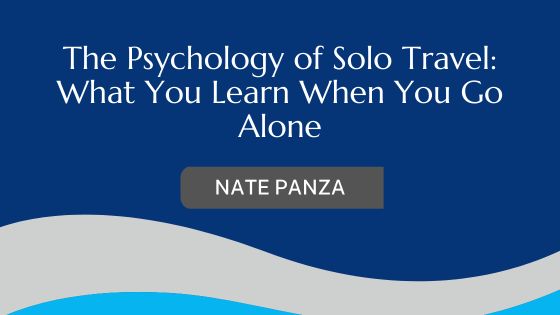Solo travel is more than just a logistical choice or a means to explore new destinations on your own terms—it’s a deeply psychological experience that can fundamentally change how you view the world and yourself. Traveling alone removes the usual distractions of companionship and forces you to engage with your environment in a raw, unfiltered way. The psychological benefits are vast, and the lessons you learn often stay with you long after the trip ends.
Self-Reliance and Confidence
One of the first and most powerful lessons of solo travel is learning how capable you truly are. From navigating unfamiliar transit systems to making quick decisions in challenging situations, traveling alone demands resourcefulness. When you realize you can handle unexpected problems by yourself, your self-confidence naturally grows. Many solo travelers report feeling more empowered in their everyday lives after returning from a trip—more willing to take risks, try new things, and speak up for themselves.
The Joy of Solitude
We often equate being alone with loneliness, but solo travel reveals the difference. Solitude, when chosen, can be profoundly rejuvenating. Traveling alone gives you uninterrupted time with your thoughts, desires, and curiosities. You’re free to explore at your own pace, linger in places that move you, and ignore those that don’t. This autonomy fosters a deeper understanding of what truly brings you joy, without the noise of external opinions.
Emotional Resilience
Things go wrong when you travel. Flights get delayed, reservations get lost, and plans change. When you’re on your own, there’s no one else to absorb the stress or share the decision-making. This forces you to manage your emotions more consciously and develop resilience. Over time, you learn to stay calm under pressure and to see challenges not as setbacks, but as part of the journey.
Increased Social Connection
Ironically, many people find they connect more deeply with others when they travel alone. Without the buffer of familiar company, you’re more likely to start conversations with strangers, ask questions, and accept invitations. You become more approachable—and more open. These spontaneous interactions often lead to the most memorable and meaningful moments of a trip.
Enhanced Self-Awareness
Perhaps the most enduring psychological benefit of solo travel is the insight it gives into who you are when no one is watching. Without familiar roles to play—coworker, friend, partner—you get a rare opportunity to just be. What do you gravitate toward? What makes you anxious, excited, bored? These realizations can lead to powerful shifts in how you live your life, make decisions, and interact with others.
Solo travel isn’t for everyone, but for those who take the leap, the rewards go far beyond photos and passport stamps. It’s a journey into yourself as much as it is into the world. You return home not just changed by where you’ve been, but by the person you’ve become along the way.

